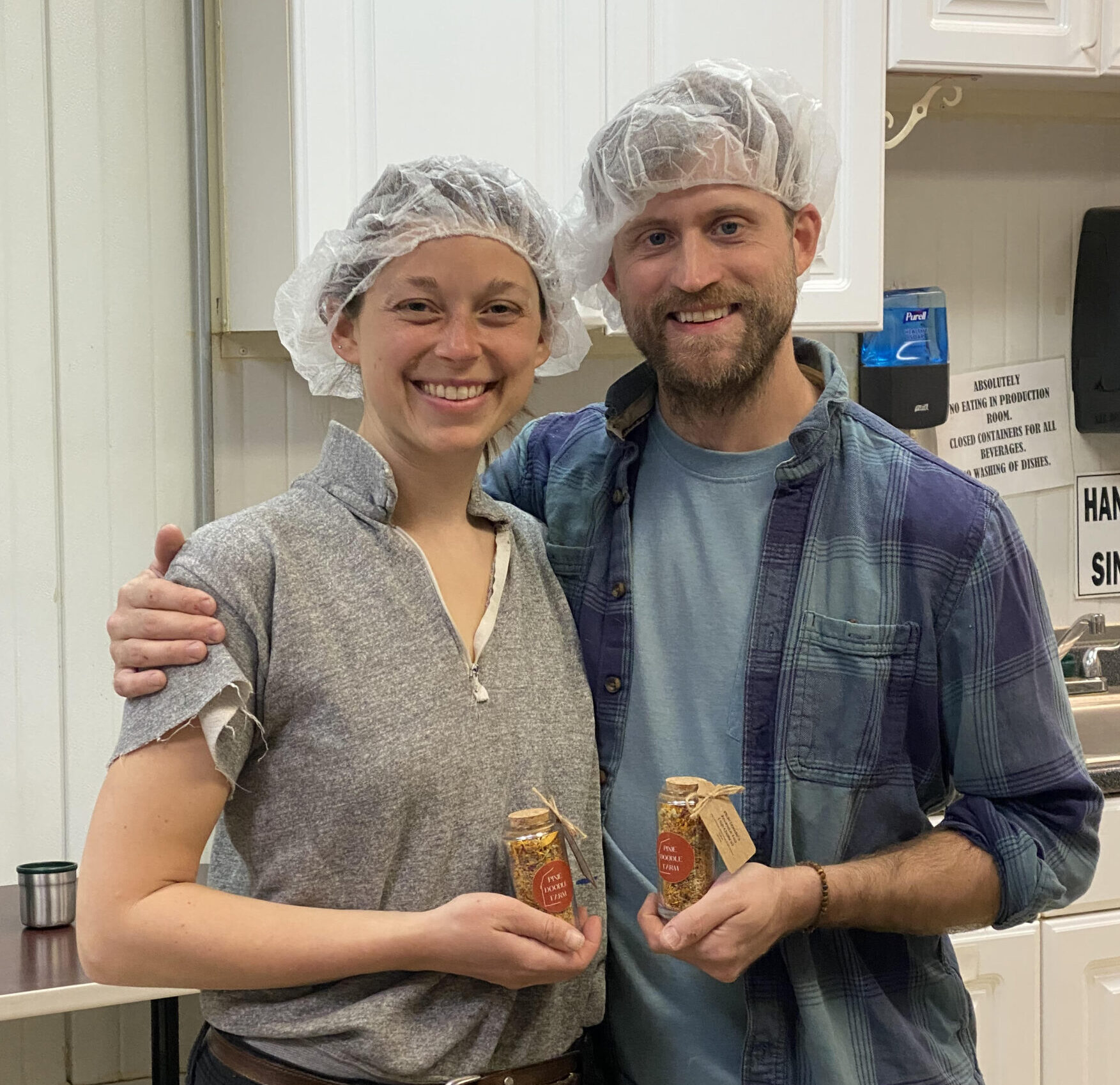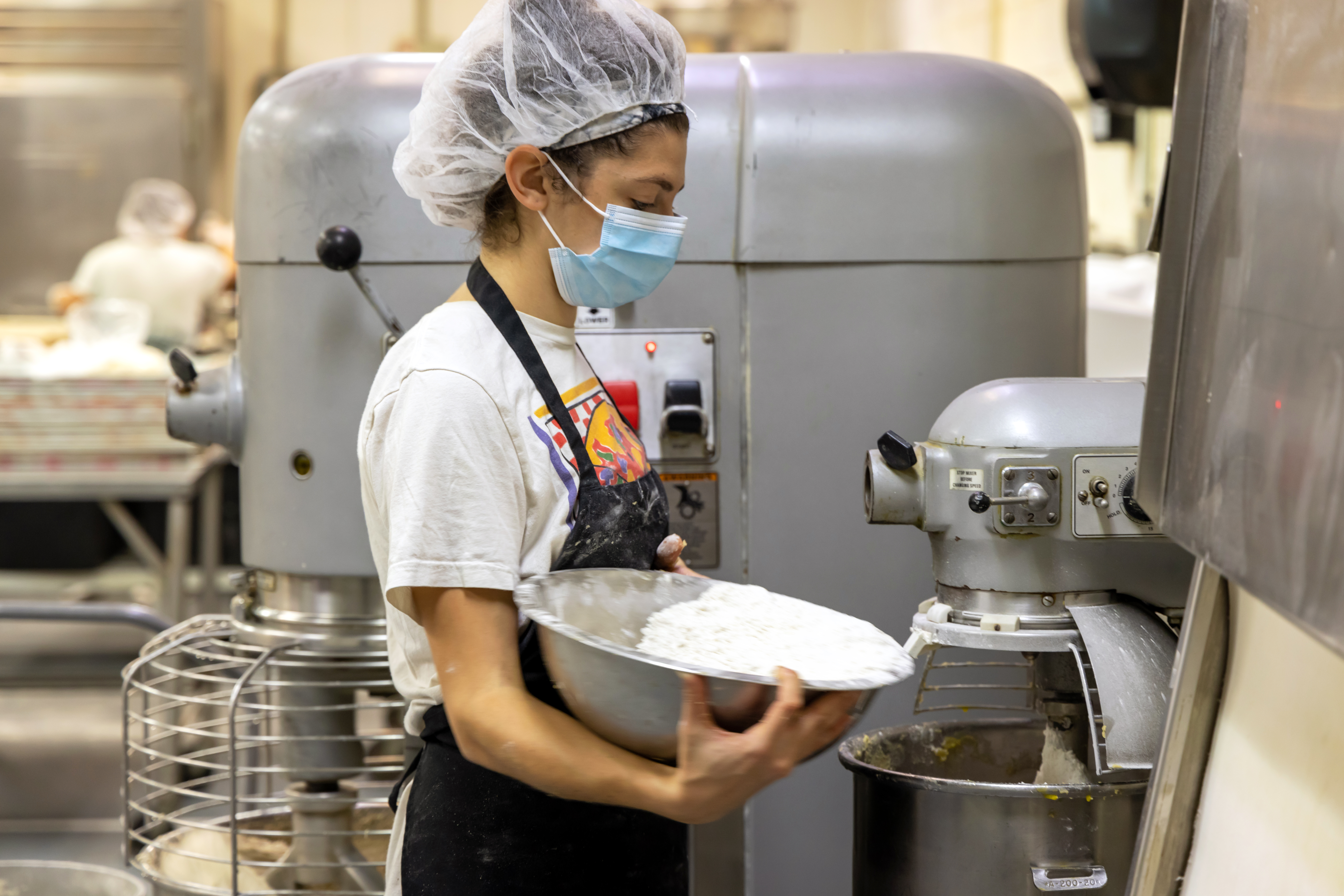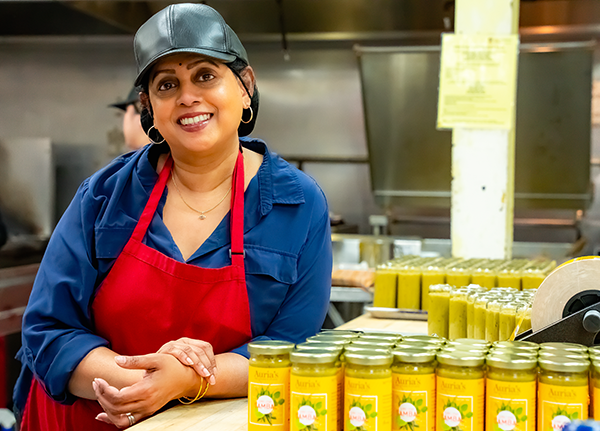The Third Act: Embarking on a Healing Journey Steeped in the Aroma of Herbal Tea
They’re not screenwriters, but Erika Boudreau-Barbee and Joseph Dale Harris are rewriting the script for health and wellness. Unique tea blends and guided healing practices are their main protagonists as they promote multicultural, holistic, and natural approaches to healing.
Their blockbuster business, Pixie Doodle Farm, peddles handcrafted, caffeine-free tea consisting of herbs sourced from reputable organic suppliers. The blends are packaged using compostable, reusable, and recycled materials, avoiding all plastics.
Peruse the products online (Pixiedoodlefarm.com) or in person at pop-up markets.
Erika and Joe began their careers as actors before realizing that their real passion was health. Launching Pixie Doodle Farm in 2021 was a no-brainer, but they found it difficult to convince investors of the company’s value. They never let up though, and business slowly started to grow.
As Pixie Doodle Farm bloomed, Erika and Joe acted on a tip from a performer friend and headed to the Entrepreneur Space, a food-and-business incubator that the Queens Economic Development Corporation administers in Long Island City. The E-Space provides a fully equipped commercial kitchen coupled with counseling, mentorship, and networking opportunities.
Is a Hollywood ending on the horizon? Thanks to the E-Space connection, Erica and Joe began receiving emails about programs and opportunities. One blast informed on the Cultivate Small Business Program that Santander Bank runs in partnership with Babson College. This program provides early-stage food entrepreneurs with business courses and capital grants. It was a turning point for the couple, arming them with priceless knowledge and $11,000 in grants. The funds helped enable their expansion into one of the East Coast’s largest holiday markets, the Union Square Holiday Market, in December. What a bargain, and now they’re headed to a pop-up at JFK Airport, thanks to the E-Space.
It was a good year, and Pixie Doodle Farm is projected to make $100,000 in revenue in 2024.
Eventually, Erika and Joe want a brick-and-mortar store to sell Pixie Doodle Farm teas and educate the community about herbalism and its benefits. Their journey has been long and full of twists and turns, but their success demonstrates that anything is possible with passion, hard work … and the E-Space.
The Numbers in the Early Stages: Things to think about when starting a food business
I remember when I got my first real job, I was told to use the rule of three when allocating my first paycheck: 1/3 for rent; 1/3 for living expenses and 1/3 for fun. Business is very similar, rent to pay for the space as you work in the incubator. Then there are expenses for ingredients and paying staff or yourself (I know – crazy thought!). Sorry, not much is left for fun!
Think of working from your home kitchen as your undergraduate time. The next step is graduate school in the incubator where you learn to use an 80-qt mixer, a commercial oven and you can spread out enabling you to make more and to sell more. By working in an incubator space, many of the costs of being on your own are included in the rent: electricity, water, carting, and extermination.
In figuring out if an incubator is right for you, look at how much space you need at home to manufacture, store ingredients and the finished products. No doubt you’ll realize the limitations – especially when it comes to space and equipment.
In a commercial kitchen incubator you’ll save time as the ovens can hold 30 sheet pans, the mixers are made for 80 quarts of dough and there is plenty of space to work. Cutting down on manufacturing time, scaling up your production and increasing sales. Isn’t that where you want to be?
Hope to see you in the markets soon!
An Example of What It Takes to Be an Entrepreneur
Auria’s Malaysian Kitchen
Auria’s story is much like many of us looking to have the flavors from home in our new home. Auria was born and raised in a tiny town called Seremban in Malaysia. She came to the US in the early 90’s to continue her studies at Berklee College of Music. While living in the college dorms, she would cook Malaysian meals for her friends who had grown tired of the same-old, same-old, cafeteria fare.
Auria began her commercial culinary journey at The Entrepreneur Space in 2013. She did all the things a new food venture should do: outgrow the incubator and move onto a co-working space; find a co-packer to manufacture some products, and eventually came full circle back to The Entrepreneur Space to launch new products.
A foodpreneur cannot sit still; ingredients may become scarce, new regulatory restrictions may be enforced, the consumer may be looking for new tastes, a foodpreneur must always be watching what is going on in the world around them.
See and hear Auria for yourself to understand why she is an award winning foodpreneur.




